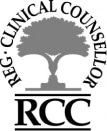- Anger
- Anxiety
- Career
- Couple and Marriage
- Depression
- Grief and Loss
- Relationships
- Self-Esteem
- Shame and Guilt
- Trauma
- Stress
- Men’s Issues
A Comprehensive, Integrative Approach at Wellspring Counselling
EMDR therapy in North Vancouver can effectively help with trauma, anxiety, depression, and various mental health issues. This therapy technique assists individuals in processing challenging memories, promoting healing, and reducing emotional distress.
EMDR therapy can help people improve their self-compassion and relationships. It can be adjusted to meet the needs of individuals or groups, offering a valuable way to reduce emotional suffering and improve well-being.
Dr. Francine Shapiro developed Eye Movement Desensitization and Reprocessing (EMDR) therapy in 1989 to help people deal with emotional and psychological issues, especially those related to trauma, anxiety, and depression.
EMDR is a helpful therapy recognized for assisting individuals in managing stress, improving relationships, and developing self-compassion. It is supported by the American Psychological Association (APA) and the Department of Veterans Affairs (VA). The therapy involves eight phases, each designed to help clients process traumatic memories and promote healing. By focusing on specific memories, EMDR effectively reduces emotional pain and changes negative thought patterns.
The essential phases of EMDR therapy include:


EMDR therapy helps people deal with difficult memories and experiences. In a session, the therapist helps the client focus on a troubling image, feeling, or memory related to their trauma. Different techniques, like guided eye movements or tapping, help with this process.
This method helps the brain heal naturally, giving people the power to overcome emotional obstacles. It also allows clients to rethink upsetting past events, improving their current experiences. As a result, EMDR therapy can significantly reduce symptoms such as anxiety, depression, anger, and other emotional challenges related to unresolved trauma.
Eye Movement Desensitization and Reprocessing (EMDR) therapy is recognized for effectively addressing various mental health challenges such as trauma, anxiety, and PTSD. Initially developed for individuals with post-traumatic stress disorder, EMDR has also shown promise in treating other issues like depression, phobias, and chronic pain.
Research shows that EMDR can help people deal with the strong emotions linked to traumatic experiences. In therapy, clients are guided to bring up distressing memories using specific eye movements or tapping techniques. This dual approach helps the brain process these memories again, reducing their emotional impact and promoting healing, similar to REM sleep. Many say they feel much better after just a few EMDR sessions, improving their overall emotional well-being. This makes EMDR a valuable treatment option.
More research has confirmed that EMDR is effective in addressing emotional challenges. However, it’s essential to understand that each person’s therapy experience may differ.

EMDR therapy helps deal with problems like trauma, anxiety, and depression, as well as other mental health issues. This therapy helps process difficult memories, promotes healing, and reduces emotional suffering.
Participating in EMDR therapy helps people develop self-compassion and improve their relationships with others. This method can be done individually or in a group to reduce emotional distress and improve overall mental well-being.
Affiliations


Clients Say
Mr. Gordon is someone that captures the spirit and the heart of active engagement. He is empathic, genuine and incorporates action and creative problem solving into his practice. I have no hesitation in recommending Mr. Gordon as an effective career and personal counsellor.
I had no experience with therapy and was unsure of the whole process. Alistair made everything very accessible and unintimidating. It was clear that he puts quite a lot of effort and preparation into every session. I'm so glad that I decided to do this, and could not have asked for a better person to help me with this. I would highly recommend Alistair to anyone who has ever thought that they might benefit from talking to a professional.
I am a young professional which for a long time now, has struggled with anxiety, insecurity, and difficulty in finding effective life coping mechanisms. Alistair was referred to me by a friend and upon the first meeting, I found Alistair to be empathetic, compassionate and intuitive. I have now been seeing Alistair regularly for 6 months and through that time my anxiety has significantly decreased, I have found effective methods of dealing with stress, found support dealing with identity issues, as well as finding inner strength to get through a tough break up. Alistair again and again, went the extra mile -thank you Alistair for your candor, openness and a safe space to get support. Thank you for playing such a large role in keeping me healthy and positive.
I have been working with Alistair Gordon as my counsellor at Wellspring for almost 6 months now and cannot begin to tell you how far I have come with his help. I have tried working with other counsellors and therapists in the past but never really found one that clicked for me. I always felt judged, unsupported, and rushed at those appointments until I booked my first appointment with Wellspring and with Allistair. To anyone on the fence about booking an appointment or engaging in therapy: if you are willing to do the work, you couldn't ask for a better partner in your healing journey.
When I decided to find a counsellor, I tried to find someone that I could relate to, someone that is like-minded and down-to-earth and with Alistair I really found the right person. He uses an integrative approach, showed me techniques to relax and get aware of my emotions, and helped me see things in a new perspective. Of course this is an ongoing process but I enjoy meeting and working with Alistair every time. The downtown office is a very neutral place - not too intimate, not too clinical - which is helpful to overcome apprehension, especially the first couple of times. What I find remarkable is that Alistair almost always knows what I'm trying to say, even if I can't put it into words. Working with Alistair helped me a lot and it was the right decision to put my trust in him.
Alistair really cares about you the person, and I could really feel him trying to tackle my challenges. He was also very available for off-session contact via text and email. I think he did a great job with confronting me where I needed it. Alistair always could remember the important peoples' names in my personal life, which really helped with talking about my problems. I really felt like I was talking to a friend.
Alistair is an awesome counsellor. He has been so helpful in working with me through some tough times in my life. He's always been available to chat with me in-between sessions. I'd recommend Alistair to anyone - he's really the ideal counsellor in my view.
I enjoy how sessions are collaborative where I can take the lead for the direction of what we talk about, and at the same time I know that Alistair will offer helpful guidance and insight along the way. I also like how we focus on the future instead of just the past. I find this to be empowering and helpful to move forward in life.
Alistair is an awesome counsellor. He has been so helpful in working with me through some tough times in my life. He's always been available to chat with me in-between sessions. I'd recommend Alistair to anyone - he's really the ideal counsellor in my view.
I have always felt very comfortable with Alistair. He has a calming presence, and you can tell he cares about being the best counsellor for you. He helps you with all aspects of your concern, and is always able to help me find a solution to the problem I'm having.
Alistair is an exceptionally talented counsellor and has always demonstrated strong ethics, great compassion, wisdom and respect for others. I highly recommend him as a counselling practitioner.
If you live in or near North Vancouver and need EMDR therapy, Wellspring Counselling can help. Our team of certified EMDR therapists offers compassionate support and a safe space to address issues affecting your mental health.
We understand that everyone’s experience with trauma or stress is unique, so we adjust our approach to fit your individual needs.
